Earth
Sign up for our newsletter
We summarize the week's scientific breakthroughs every Thursday.
-
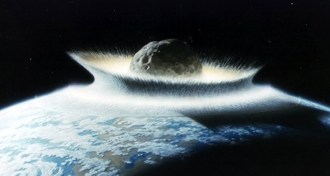 Earth
EarthEighth century carbon spike not from comet impact
The space rock would have to have been 100 kilometers across and 100 billion to 1,000 billion tons, leaving a disastrous impact not supported by geological or written records.
-
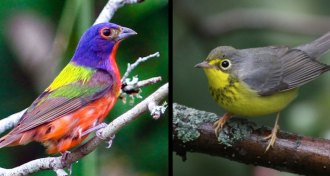 Animals
AnimalsWindows may kill up to 988 million birds a year in the United States
Single-family homes and low-rise buildings do much more damage than skyscrapers.
By Susan Milius -
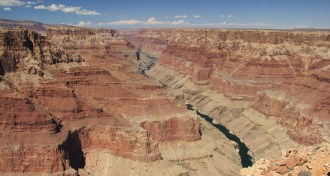 Earth
EarthGrand Canyon’s origin dated to 6 million years ago
Even though parts of the canyon are old, the chasm could not have taken on its grand form until erosion from the Colorado River connected all of the smaller canyons, which was roughly 6 million years ago, scientists argue.
-
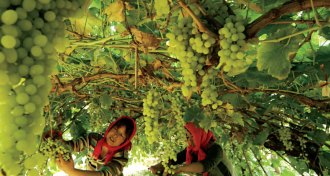 Climate
ClimateGrape expectations
Global warming has delivered long, warm growing seasons and blockbuster vintages to the world’s great wine regions. But by mid-century, excessive heat will push premium wine-making into new territory.
By Susan Gaidos -
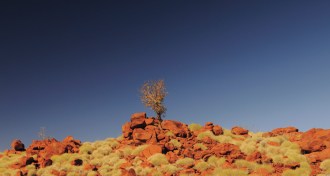 Earth
EarthLife’s early traces
Tiny tufts, rolls and crinkles in 3.5-billion-year-old rocks add to a growing body of evidence suggesting that cellular life got a relatively quick start on Earth.
By Meghan Rosen -
 Climate
Climate2013 among top 10 warmest years on record
Global temperatures have now been above average for 37 consecutive years.
-
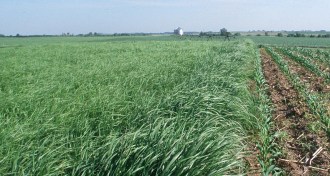 Agriculture
AgricultureSome bioenergy crops are greener than others
In the Upper Midwest, switchgrass trumps maize at boosting ecological health.
By Beth Mole -
 Agriculture
AgricultureDealing with change, climate and otherwise
Wine, DNA, our understanding of the universe: It's all changing, whether we are ready for it or not.
By Eva Emerson -
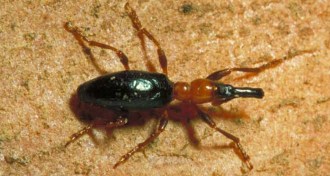 Agriculture
AgricultureSweet potato weevils have favorite colors
When it comes to eradicating the sweet potato weevil, the devil is in the colorful details.
-
 Earth
EarthThe long and winding Colorado
The history of the West’s iconic river is written in the dramatic landscapes it has shaped. How to interpret that chronicle has become a contentious issue among geologists.
-
 Chemistry
ChemistryBattery blueprint promises green energy storage
A device that relies on organic molecules could cheaply bank power from renewable sources.
By Beth Mole -
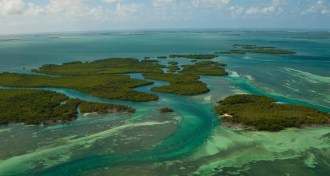 Climate
ClimateMangroves move up Florida’s coast
Satellite images reveal that the tropical trees are expanding north up Florida’s Atlantic coast, taking advantage of rising winter temperatures.